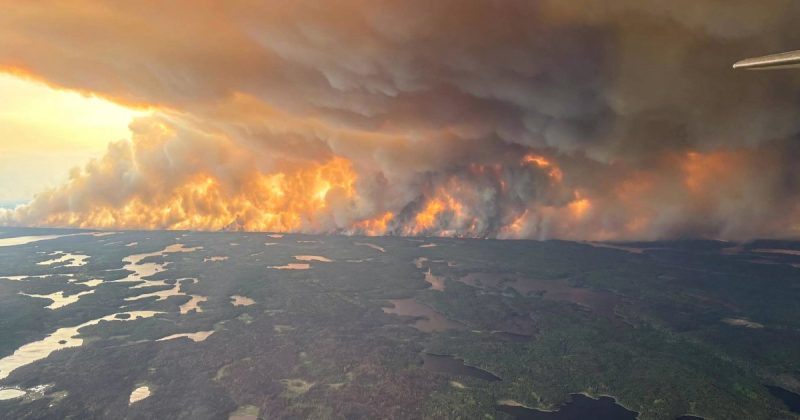
Smoke from the raging Canadian wildfires continues to blanket parts of the Midwest and Great Plains, prompting air quality alerts across multiple states. The Canadian Interagency Forest Fire Centre reports over 90 uncontrolled blazes across the country, with the situation in Manitoba particularly dire, forcing approximately 17,000 evacuations. High-altitude winds acted as a bellows, pushing the smoke southward, blanketing states from the Upper Midwest to the Georgia-Florida border. This hazy pall is expected to persist until at least Monday.
The impact on air quality is significant. Minnesota has issued a statewide air quality alert through Monday evening, with northern counties facing unhealthy air quality according to EPA’s Air Quality Index (AQI). Even those not in sensitive groups (pregnant individuals, newborns, the elderly, and those with respiratory or heart conditions) might experience symptoms like itchy eyes, runny noses, coughs, or shortness of breath. Wisconsin, while having lifted a previous advisory, anticipates another one due to worsening smoke conditions, particularly in the northwest.
North Dakota is facing particularly severe air quality, with some areas registering “very unhealthy” levels on the AQI. Residents, especially those with respiratory issues, are strongly urged to limit outdoor activities and take precautions like closing windows, running air filters, and wearing N95 masks. South Dakota has also issued air quality alerts for specific areas.
This isn’t the first time the U.S. has felt the impact of Canadian wildfires. In 2023, smoke plumes caused unhealthy air quality levels in major Northeastern cities like New York City, Boston, Philadelphia, and Washington, D.C., highlighting the far-reaching consequences of these events. A recent study underscored the serious health risks associated with inhaling this smoke, linking it to increased risks of cardiac arrest, asthma attacks, stroke, heart disease, lung cancer, and chronic kidney disease.
The increased frequency and intensity of wildfires are directly linked to climate change, a factor also contributing to other extreme weather events such as hurricanes and heat waves. As the Midwest grapples with this air quality crisis, other regions are facing their own challenges; severe storms impacted the South and East Coast, while millions in the West endured extreme heat warnings with temperatures exceeding 100 degrees Fahrenheit. The interconnectedness of these climate-related disasters underscores the urgent need for action to mitigate the effects of climate change.










